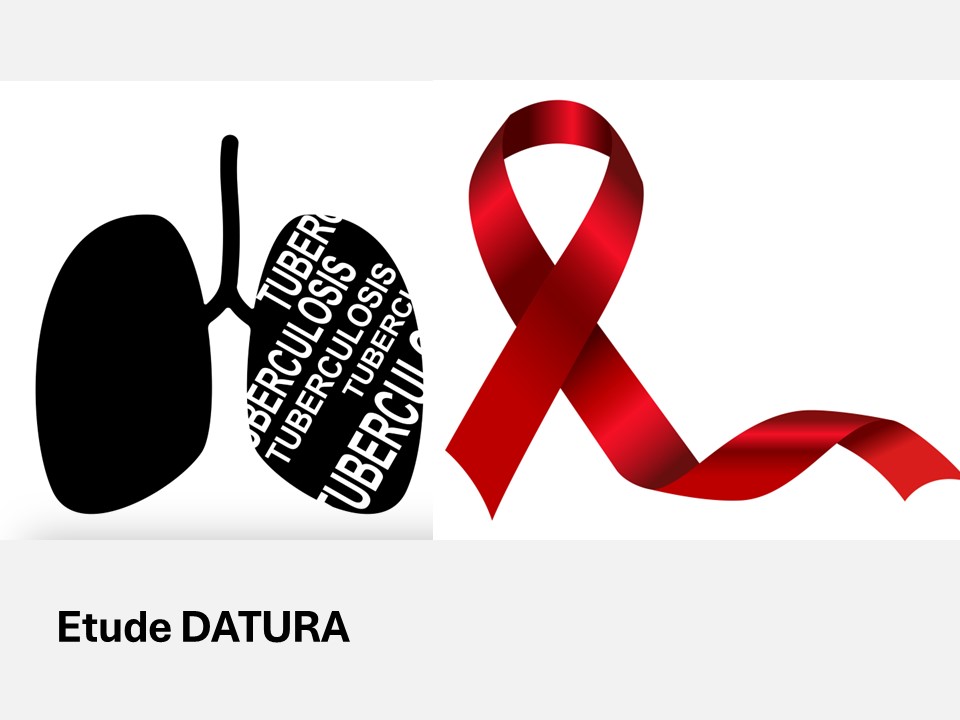
ANRS DATURA study
Determining appropriate treatment for tuberculosis in hospitalised adults and adolescents with severe HIV-associated immune suppression
Last updated on 21 May 2025
The essential
The DATURA study is an international phase III clinical trial evaluating the efficacy of intensified anti-tuberculosis treatment against mortality due to tuberculosis in immunocompromised people (hospitalised adults and adolescents) living with HIV. The project is being set up in five African countries (Cameroon, Guinea, Uganda, Zambia and Mozambique) and one South-East Asian country (Cambodia).
The project
Tuberculosis and HIV: what are the risks?
In people with severe immunodepression associated with HIV (CD4 ≤ 100 cells/ μL), the incidence of tuberculosis is high and represents the most frequent cause of hospitalisation and death. Trials are currently underway to examine whether intensification of TB treatment can reduce the high mortality rate observed in these hospitalised patients.
What is the aim of the study?
The aim is to study an intervention combining increased doses of antibiotics (rifampicin and isoniazid) with a corticosteroid (prednisone).
Which patients can take part?
Patients must be 15 years of age or older and have HIV-1 infection with a CD4 lymphocyte count ≤ 100 /μL. They must be hospitalised for newly diagnosed tuberculosis.
What are the expected results?
The study will assess the impact of this treatment on mortality at 48 weeks in HIV-infected adults and adolescents hospitalised with tuberculosis. Other secondary endpoints will include mortality at 8 and 24 weeks, tolerability of treatment, success of tuberculosis treatment and response to antiretroviral treatment.
What is the schedule?
Participants was recruited in five African countries (Cameroon, Guinea, Uganda, Zambia and Mozambique) and one South-East Asian country (Cambodia).
Participant enrollment in the DATURA study was completed in December 2024. However, participants will continue to be monitored until their final trial visit, which will occur 48 weeks after the initiation of anti-TB treatment.
The last visit for the final participant is expected to take place on November 14, 2025.
We have high expectations of this research project, because the mortality rate due to tuberculosis among people living with HIV is still very high, and can be as high as 30% in highly immunocompromised patients. In Guinea, the mortality rate from tuberculosis has fallen considerably, except among HIV-infected patients. This is why we hope that DATURA can provide answers as to the causes of this high mortality rate, and enable more appropriate therapeutic approaches to be developed.
In brief
Principal investigators
Didier Laureillard, UMR1058 – PCCI, Montpellier, Department of Infectious and Tropical Diseases, Nîmes University Hospital
François-Xavier BLANC, Pneumology Department, CHU Nantes, Laënnec Hospital, Nantes
Status
In progress
Pathologies
HIV, tuberculosis
Sponsorship
Inserm/ANRS MIE
